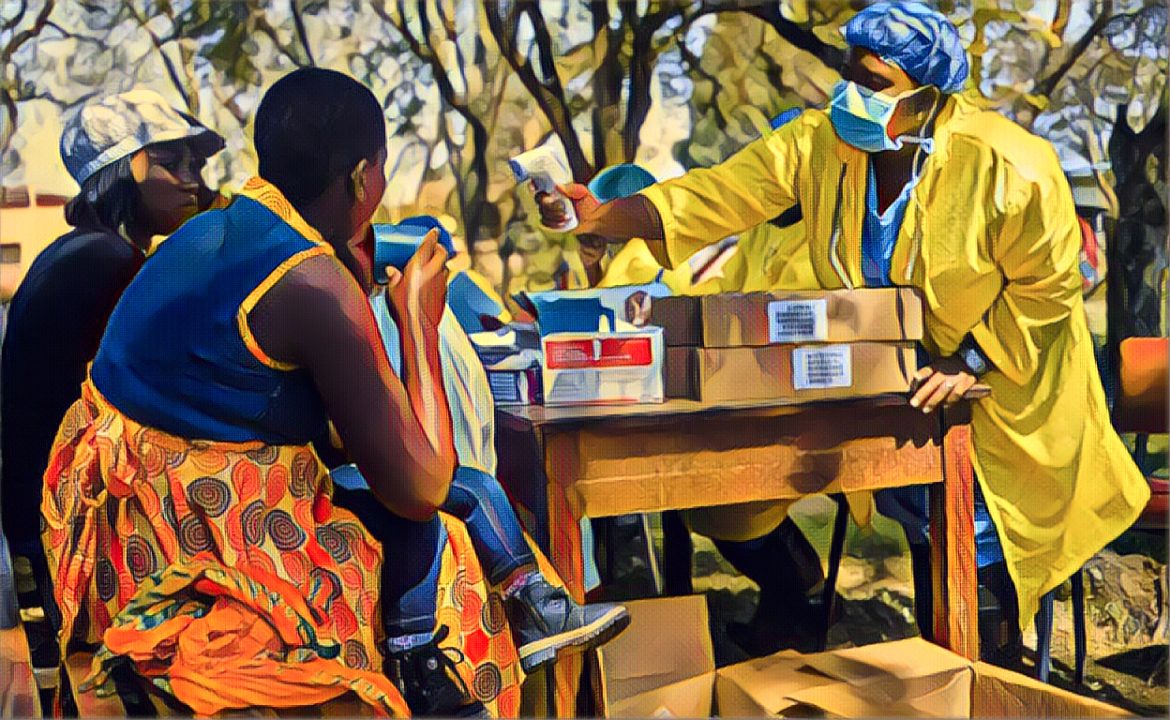Zimbabwe is facing a deadly cholera outbreak that has claimed over 200 lives and infected thousands more across the country. The water-borne disease, which causes severe diarrhoea and vomiting, is spreading rapidly due to poor sanitation, lack of access to clean water, and inadequate health care facilities.
The Zimbabwe Lawyers for Human Rights (ZLHR) have accused the authorities of “dereliction of duty” and “failure of leadership” in the handling of the crisis. They said the officials should be held accountable for violating the constitutional rights and international obligations of the people.
“The ongoing cholera outbreak is a chilling reminder of the devastating consequences of failing to provide necessities to the people. The government must act swiftly and effectively to protect lives and prevent further tragedy,” the ZLHR said in a statement.
The rights lawyers expressed outrage over preventable deaths from a “medieval disease” in Zimbabwe, a country that once boasted of having one of the best health systems in Africa.
According to a report by Newsday Zimbabwe, they urged the government to significantly increase budgetary allocations for water, sanitation and hygiene, and to ensure the progressive realisation of the right to health care, clean water and a safe environment for everyone.
WHO Intervenes to Save Lives and Contain The Outbreak
As the cholera epidemic worsens, the World Health Organization (WHO) has intervened by setting up cholera treatment centres in the most affected areas. The aim is to improve access to critical care and prevent further deaths and spread of the disease in vulnerable communities.
“This move aims to improve access to critical care and prevent further deaths and spread of the disease in vulnerable communities,” WHO said.
The global health agency said the upgrading of the cholera treatment centres would lead to increased bed capacity through expanding the facilities to accommodate a larger number of cholera patients.
WHO representative to Zimbabwe, Jean-Marie Dangou added: “These upgrades are crucial to ensure timely and effective care for cholera patients in rural areas. By expanding treatment capacity, improving hygiene and equipping healthcare workers, we can save lives and contain the outbreak.”
A Recurrent and Preventable Disaster
Cholera is now endemic in Zimbabwe, with recurrent outbreaks occurring every year since 2008, when the country experienced its worst cholera epidemic in history, killing over 4,000 people and infecting nearly 100,000.
The disease is caused by drinking water or eating food contaminated with the cholera bacterium, which thrives in areas with poor sanitation and hygiene. It can be easily prevented and treated with oral rehydration salts, antibiotics and vaccines, but without proper care, it can kill within hours.
The current outbreak has been exacerbated by the economic and political crisis that has plagued Zimbabwe for decades, resulting in the collapse of public services, infrastructure and institutions.
The government has responded by banning gatherings in cholera hotspots and declaring a state of emergency, but critics say these measures are not enough to address the root causes of the problem.
“To arrest the cholera epidemic and prevent recurrent outbreaks of the primitive disease, ZLHR implores local and central governments to seriously embrace their social and economic rights obligations provided in the Constitution and guarantee progressive realisation of the right to healthcare, the right to safe, clean and potable water for everyone and the right to a clean environment that is not harmful to people’s health or their well-being,” the organisation said.
Despite the challenges and hardships, many Zimbabweans remain hopeful and resilient, and are working together to overcome the cholera crisis. Some have volunteered to assist the health workers, while others have donated money and supplies to the affected communities.


